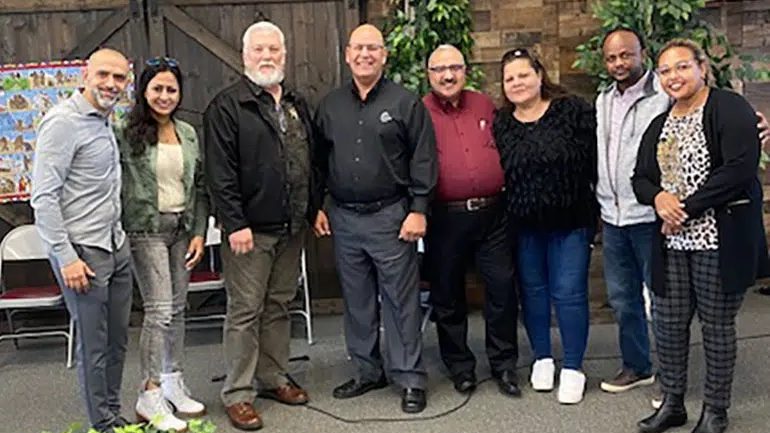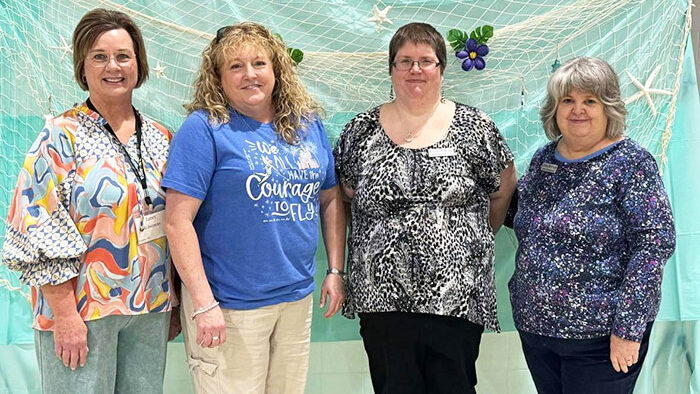A group of Southern Baptists of Texas Convention pastors and leaders recently attended the second-annual Arabic Baptist Pastors Conference.
The event was sponsored by the San Antonio Baptist Association and the SBTC. Arabic pastors from California, Canada, Michigan, New York, Tennessee, Texas and other states gathered to worship, network and encourage each other to reach fellow Arabic-speakers for Christ.
United by faith, determination
These pastors came from different countries to serve in the U.S. and, despite being natives of Ethiopia, Jordan, Egypt and other countries, are united by their language, their love for Jesus Christ and their determination to reach the Arabic community with the gospel.
“We want to work, connect and partner with you to advance the gospel,” said SABA Executive Director Darrell Horn, adding that his association is planning to strengthen its relationship with Arabic pastors and will stay in touch through monthly Zoom meetings.
The conference’s main organizers were SBTC Pastor Ra’id Al Safadi and his wife, Lana — who are originally from Jordan. Ra’id is the bivocational pastor of the Arabic Baptist Church in San Antonio, and he and his wife also own a restaurant. Their desire is to have a network of Arabic pastors meet yearly to minister, equip, serve each other and plan how to reach the lost Arabic people groups in the U.S.
The SBTC was also represented at the Feb. 15–18 event by Eritrean pastor Danial Habte and his wife, Weini, who are from Ethiopia and serve Kingdom Gospel Church in Amarillo and Egyptian Pastor Said Tharwat and his wife, who serve at Arlington Arabic Baptist Church.
Pastor Said appears in a video on the SBTC’s multilingual 1CROSS app sharing the gospel in Arabic.
Stephen Napier, from Global Outreach International — whose ministry is multiplying church leadership among native populations — came from Alaska to encourage the Arabic pastors. He led them through Nehemiah’s journey and told them, “Nehemiah accepted his weaknesses, was moved to compassion, prayed, took action, knew that God can do supernatural things and moved forward and shared with the king,” and he asked them to follow his example.
Napier also communicated the importance of having a yearly budget, setting up their finances, having a well-thought-out financial plan and being ready.
‘Continue praying, preaching and reaching’
Bruno Molina, SBTC’s language and interfaith evangelism associate, encouraged the pastors by telling them, “Continue praying, preaching and reaching, because we are ambassadors of Christ. In spite of God appearing to Muslims in their dreams, He has not removed human agency from sharing the gospel.”
Molina preached about how Christians, like the apostles in Acts 4:20, cannot stop speaking about what they have seen and heard.
He also shared the various resources available to them developed by the SBTC in their own language, as a well as tools on the SBTC website, the 1CROSS app and the FIRE initiative which connects local churches with professors and students at Southwestern Baptist Theological Seminary, Criswell College, and Jacksonville College for the purpose of engaging in evangelism in their communities.
‘New beginning’
One of the pastor’s wives present noted, “The pastor’s wives felt valued, precious and validated” by the gathering because they are often working alone. Lana Safadi, an Arabic women’s conference speaker who helped translate at the conference, said, “This type of conference is a new beginning, a new dream, and it would be wonderful and a blessing to have this conference here every year. Pastors and their wives need each other.”
Pastor Al Safadi reminded pastors, “Please take care of yourselves. We are here to serve the Arabic community, but don’t overwork yourselves thinking that you are a failure because you only visited 10 people per week.”
Al Safadi encouraged them to rest and also to “spend time with God, start small, think of partnering with the English-speaking churches, spend time together with them, share your passion, develop relationships, find new opportunities to meet pastors from other cultures, reach out to the local Baptist associations, find people that are spiritually supportive to pray for you and for accountability, use technology, have a financial plan and don’t work alone.”
EDITOR’S NOTE —This article was written by Clara Molina and first published by the Southern Baptist Texan, newsjournal of the Southern Baptists of Texas Convention.








